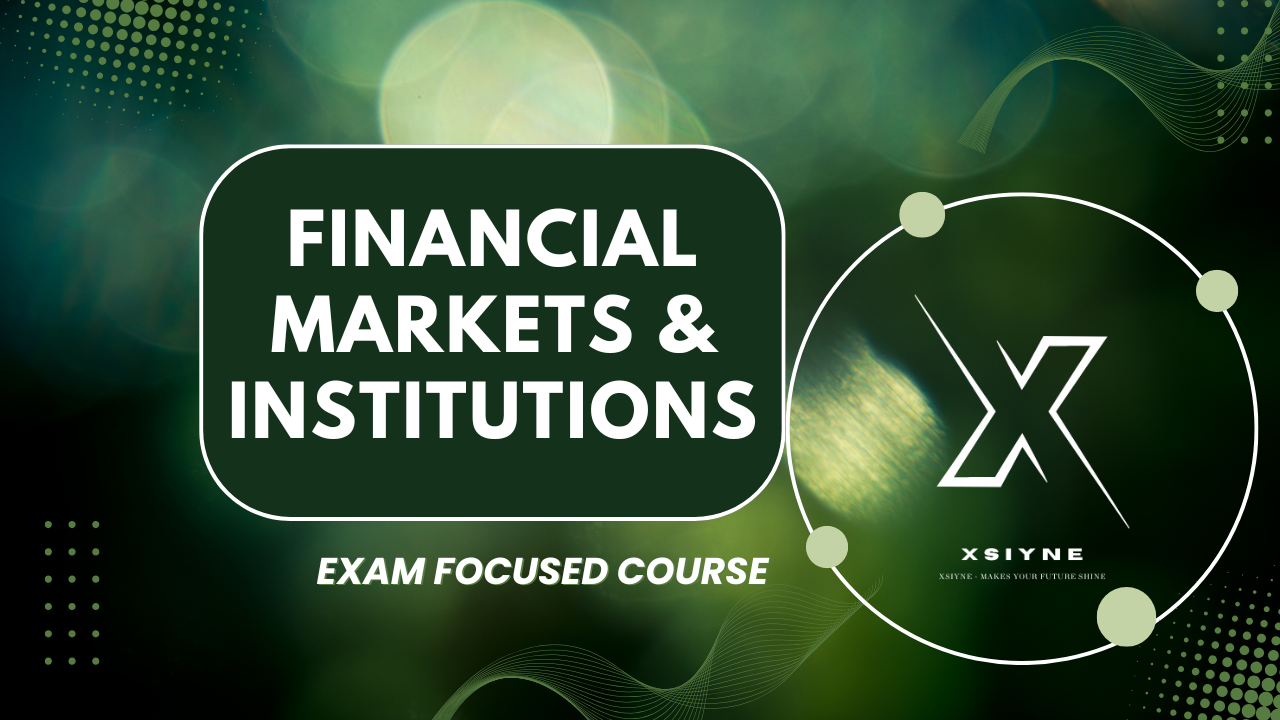Financial Markets and Institutions DU 3rd Semester (DSE-3.2)

About Course
Complete Exam-Ready Course for Delhi University Students
Are you in 3rd Semester at Delhi University, (Bcom Prog./Bcom Hons.) and struggling to prepare for your Financial Markets and Institutions exam?
This one complete course gives you everything you need to score 100% Full marks, even if you haven’t studied a single chapter yet.
This is not just another theory course. It’s a targeted, exam-oriented program built strictly as per DU syllabus — designed to make you exam-ready in minimum time with maximum understanding.
Course Content
Unit 1: Introduction
-
Locked